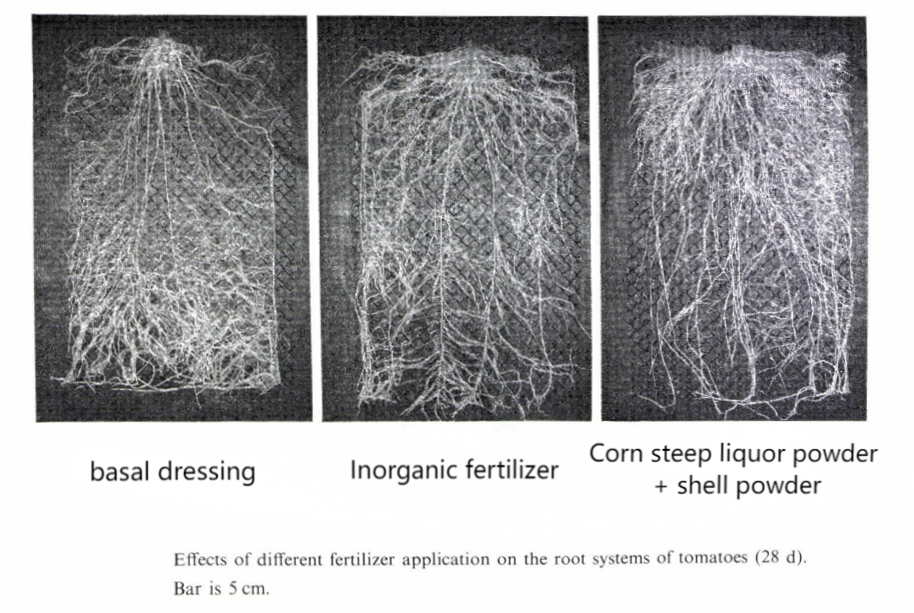Trustworthy Supplier




The advantages of using corn steep liquor as a nitrogen source to produce erythromycin
Release time:
2024-08-14
Nitrogen source has long been considered an important parameter affecting enzyme expression and activity, and selecting appropriate organic nitrogen sources is crucial for erythromycin synthesis. Corn steep liquor is one of the widely used nitrogen sources in the antibiotic fermentation industry.
The market prospects of erythromycin are vast. It can not only be used as an antibiotic, but also as a precursor. Through a certain process, erythromycin can be converted into antibiotics such as erythromycin, azithromycin, clarithromycin, etc.
Nitrogen source has long been considered an important parameter affecting enzyme expression and activity, and selecting appropriate organic nitrogen sources is crucial for erythromycin synthesis. Corn steep liquor is one of the widely used nitrogen sources in the antibiotic fermentation industry.

1: Cheap price and rich nutrition
Compared with other fermentation substrates, corn steep liquid is only 1/5 cheaper than yeast extract and peptone, and can replace yeast extract as a nitrogen source for producing erythromycin; corn steep's nitrogen exists in the form of protein (43%) and amino acid (35%), which can serve as a quick acting nitrogen source and facilitate microbial utilization; It can serve as a source of trace elements such as phosphorus and magnesium, which are also essential catalysts in many metabolic pathways. It can also serve as a source of vitamins and other growth factors, which are essential for the production of many primary and secondary metabolites.
2: Can serve as a nitrogen source for the culture medium, promoting bacterial growth
Corn steep liquor is the most suitable organic nitrogen source for the industrial production of erythromycin. Adding corn steep water to the fermentation medium can increase the oxygen consumption rate of bacterial cells, promote microbial growth, reproduction, metabolism, and product synthesis; This is beneficial for the production of erythromycin.
Researchers have conducted experiments on seven fermentation media, and the results showed that using corn steeping as an organic nitrogen source, ammonium sulfate as an inorganic nitrogen source, and molasses as the sole carbon source in the media formula can achieve the highest erythromycin yield among the seven formulas; This is also the most suitable medium for producing erythromycin, and this medium formula based on inexpensive nitrogen and carbon sources is also a good choice for economically and efficiently producing erythromycin.
3: It can be used as nutritional supplement in fed-batch culture
The factors that affect the production of erythromycin and the growth of microbial cells include not only the ratio of carbon and nitrogen sources and the concentration of nitrogen, but also the form of nitrogen supplementation. fed-batch culture has been proven to effectively increase the yield of erythromycin.
Experimental results have shown that adding 0.2% isopropanol, 4% molasses, and 1% corn steep liquor as nutritional supplements during batch cultivation in a bioreactor can increase erythromycin production by 25% compared to batch cultivation without adding any nutrients.
If you are interested in corn steep liquor/powder, please email us
https://www.sdjuci.com/product/Products-5
E-mail : sales@jucitrade.com

Blogs
Corn Steep Liquor Powder Organic Fertilizer: A Good Helper for Improving Soil Compaction
Corn Steep Powder is rich in nutrients. By "supplementing high-quality organic matter and activating microorganisms," it can specifically repair soil structure and fundamentally address the compaction problem.
Specifically, when the culture medium contained 5 g/L Corn Steep Liquor Liquid and 7.6 g/L sodium glutamate, the absorbance of the red pigment reached 20.7 U, compared to only 12.4 U in the control. This indicates that the addition of Corn Steep Extract significantly increased red pigment production.
Benefits of Adding Corn Steep Liquor Powder to Feed Fermentation
Adding corn steep liquor powder to feed fermentation can positively impact the fermentation process and final results in multiple ways, including nutritional supplementation, fermentation efficiency, and cost control.
Organic farm: Corn Steep Liquor Powder are promoters of tomato seedling growth
Corn steep liquor dry powder has a balanced ratio of NPK 7-7-7 and is 100% soluble in water. It is rich in up to 60% organic matter, which can transport a large amount of carbon source to the soil and effectively improve the physical and chemical properties of the soil. The protein content of Corn Steep Powder is not less than 42%, and the total amino acid content is not less than 35%. These nutrients can be directly absorbed and utilized by crops, providing sufficient nitrogen source guarantee for the growth of tomatoes.
Corn steep liquor powder has a cost advantage and more comprehensive nutrition than amino acid powder. The two can form a synergistic effect in the application of agricultural fertilizers through nutritional complementarity, fertilizer efficiency enhancement and cost optimization, which can achieve the improvement of fertilization effect and optimization of economic benefits.
Corn Steep Liquor Powder: The "Nutritional Engine" in Industrial Fermentation
In the fields of bio-pharmaceuticals, amino acid production, and enzyme preparation production within industrial fermentation, the quality of fermentation media raw materials directly impacts the production efficiency and product quality of microbial fermentation. As a practitioner in the industrial fermentation sector, are you searching for a high-quality fermentation raw material that can enhance production efficiency, reduce costs, and improve product quality? Corn Steep Liquor (CSL) powder is your optimal choice.













